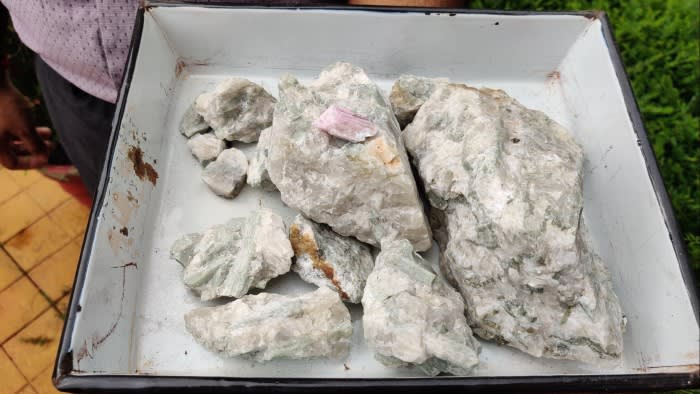
Stay informed with free updates
Simply sign up to the Indian business & finance myFT Digest — delivered directly to your inbox.
India is seeking to shore up its access to critical minerals such as lithium, a government official said, as the world’s most populous country rushes to catch up with rivals including China in the race to build next-generation energy supply chains.
New Delhi is pushing state-owned mining groups to pursue mineral reserves in South America and Africa as well as inviting bids to develop domestic mining blocks as it seeks to expand industries such as electric vehicles and renewables, where Beijing has a commanding lead.
“The importance and requirement and need for critical minerals is exponentially increasing because of the technology, growth and climate goals we have set for ourselves,” VL Kantha Rao, a secretary in India’s ministry of mines, told the Financial Times.
“The same way we have been doing it for all these years for bulk minerals like copper and coal, we will be doing it for critical minerals.”
Lithium, a critical component for EV batteries, has been found in India’s northern territory of Jammu and Kashmir and the central state Chhattisgarh.
India plans to earmark about half of its planned domestic exploration projects over the coming year for critical minerals such as graphite, molybdenum, nickel, cobalt, lithium and potash, Rao said. The government also plans to announce the successful bidders from a November auction for 20 mining blocks next month.
Rao said that a second round tranche of 20-30 blocks would be offered to bidders after the general election, which will wrap up in early June.
India also announced in January that it had acquired five lithium blocks in Argentina. India’s state-owned Khanij Bidesh India Ltd (Kabil), which was established in 2019 to secure critical minerals, signed an agreement with Catamarca Minera y Energetica Sociedad del Estado (Camyen), which is owned by the government of Argentina’s north-west Catamarca province.
Kabil in 2022 also signed a memorandum of understanding with Australia’s Critical Mineral Office to identify and develop potential projects in the country.
Rao said India was also considering pursuing critical minerals projects in Chile, “which has some very good copper and lithium mines” and Bolivia, where the state has kept a tight grip on lithium reserves and has yet to produce significant amounts of lithium carbonate, a critical component for EV batteries. He also named African countries including Namibia, the Democratic Republic of Congo, Zambia, Mozambique and South Africa.
India, one of the world’s fastest-growing economies, is earmarking billions of dollars in subsidies for EV manufacturing, renewable technology and electronics that rely on supplies of critical minerals.
However, New Delhi is a late arrival — and for now a small player — in a global race with geopolitical implications as countries seek to secure supplies critical to next-generation energy technology.
It has done little to date to close the multi-decade lead in securing mineral supplies held by China, whose companies have, for example, invested heavily in Indonesia, the world’s largest nickel producer.
India is a member of the Minerals Security Partnership, a US-led coalition of 14 countries and the EU to secure a stable supply of raw materials.
However, acquiring exploration blocks is a slow and speculative process compared with buying companies that have already completed significant exploration and feasibility studies, sectoral analysts said.
Susana Peralta, Camyen’s president, said the group awarded KABIL the right to 15,000 hectares where it plans to exploit lithium for 20 years, with an option for a 20-year extension. She added that Greenko Energy Holdings, a Hyderabad-based company, was granted a similar contract to exploit lithium last year.
Peralta said that Kabil and Greenko were both “just starting to meet with different providers to see who is going to do the exploration”.
Jeff Townsend, founder of the Critical Minerals Association, a UK trade body, said India had the advantages of huge mineral reserves, an inexpensive, large labour-force of engineers and cheap energy.
“India has yet to take advantage of all it has,” he said. “It’s tricky to bring those strengths to bear quickly but if they do, then they will have laid the foundation to be a very important player within the critical minerals space.”
